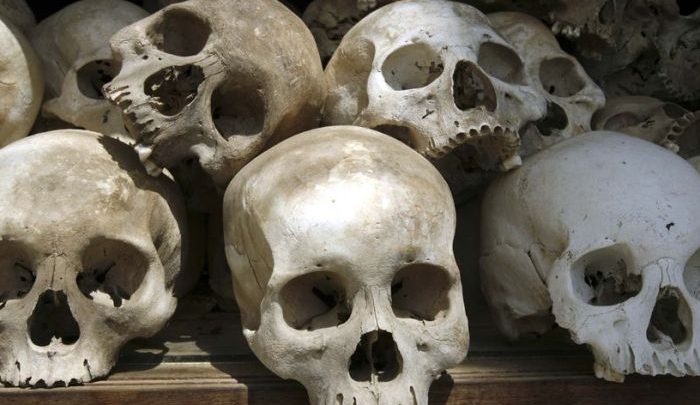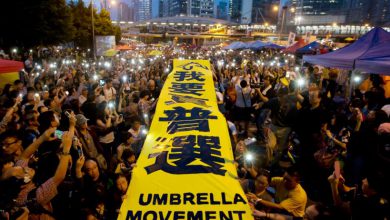AllAsia and OceaniaResolved
Reconciliation in Cambodia: 40 Years since Khmer Rouge
Ruled a genocide, an estimated 2 million Cambodians died during the Khmer Rouge era. The impact of the ultra-Maoist Pol Pot regime still affects the country today. How is Cambodia grappling with this painful legacy?

Upon their ascent to power in 1975, the Khmer Rouge and leader Pol Pot began and sustained a genocidal regime that lasted until 1979. The country of Cambodia has experienced a massive social change since the fall of the Khmer Rouge. While most Cambodians alive today did not actually live through the Khmer Rouge era, their society is still dealing with the painful legacies of the era while politics in the country remains as polarized as ever.
The Khmer Rouge communist movement stemmed from the anti-colonial struggle against France which took place during the 1940s. In 1970, the existing monarchy was toppled by a US backed operation which set the stage for a long struggle against the forces of Khmer Rouge. Despite a massive bombing campaign in 1973 by the Cambodian government (and backed by US forces), the Khmer Rouge still maintained control of the majority of the country’s territory. By 1975, the capital completely fell to forces of the Khmer Rouge.
During their regime, the ruling party carried out the arrests and extrajudicial killings of thousands of members of the previous regime which included soldiers, politicians and bureaucrats who were considered to be impure. “Pure people” was term defined by the Khmer Rouge as those who were fit and capable to build the agrarian communist state which they set out to establish.
In the years following, the Khmer Rouge continued the detention and killing of academics, minorities and other citizens who were deemed not likely to conform were detained, tortured and executed in prisons. The most infamous of these, “S-21,” held about 14,000 prisoners during its time of operation. The Cambodia Tribunal monitor reports that only 12 people survived their tenure at detention in S-21. In total, an estimated 2 million perished at the hands of the Khmer Rouge regime.
An international tribunal almost four decades after the fall of Khmer Rouge and its leader Pol Pot ruled that the regime committed genocide. This ruling hopes to bring closure to millions of Cambodians, including the descendants of those killed during the communist rule. Two senior surviving members of the political party were found by the court to be guilty of genocide of Vietnamese in Cambodia between the years of 1975 and 1979.




